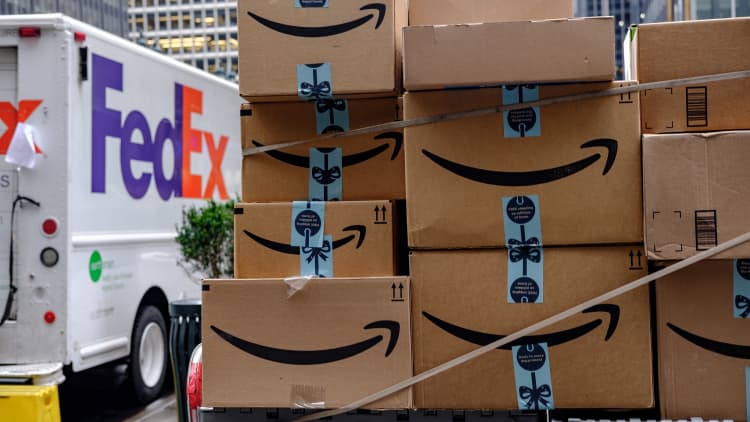Free returns may be over as retailers introduce stricter policies

Policy adjustments ‘deter the consumer from returning’
With rising costs squeezing margins, many retailers are rethinking their return policies, shortening the return window and even charging a return or restocking fee, according to Spencer Kieboom, founder and CEO of Pollen Returns, a return management company.
Stores like Gap, Old Navy, Banana Republic and J. Crew (which was once well-known for a generous return policy that spanned the lifetime of a garment) have shortened their regular return windows to within a month. Holiday shoppers have some reprieve: J. Crew and others are currently offering extended holiday returns and exchanges.
At Anthropologie, REI and LL Bean (which also once promised lifetime returns), there’s now a fee — all around $6 — for mailed returns.
“These adjustments in return policies are not there to cover costs,” Kieboom said. “They’re really there to deter the consumer from returning.”
‘The supply chain is designed to go one way’
United Parcel Service (UPS) driver pushes a dolly of packages towards a delivery van on a street in New York.
Victor J. Blue | Bloomberg | Getty Images
With the explosion of online shopping during the pandemic, “free returns was a high convenience model the customer appreciated,” said Erin Halka, senior director at Blue Yonder, a supply chain consulting company management company. Now, with higher labor and shipping expenses, it is costing retailers “a tremendous amount of money” to sustain, she said.
“Charging for returns is one way to cover a portion of that cost,” she said. “It also can deter customers from overbuying, since at least 10% of returned goods cannot be resold.”
Just as retailers struggle with excess inventory, “often returns do not end up back on the shelf,” and that causes a problem for retailers struggling to streamline expenses and enhance sustainability, Kieboom said.
Changing the return policy is an easier pill for the costumer to swallow than an increase in the purchase price.
Lauren Beitelspacher
associate professor at Babson College
“The supply chain is designed to go one way,” said Lauren Beitelspacher, associate professor and chair of the marketing department at Babson College.
“The more money retailers lose on returns the more they have to make up for that by raising prices,” Beitelspacher said.
“Changing the return policy is an easier pill for the costumer to swallow than an increase in the purchase price.”
How to avoid return fees
Still, shoppers love free returns almost as much as they love free shipping. In fact, 98% of consumers said that free shipping was the most important consideration when shopping online, followed by more than three-quarters who said the same about free returns, according to a recent report by PowerReviews. Affluent shoppers were even more likely to favor a free return policy.
If the option to return is important, get to know the policies before you buy, experts say. Often, it’s not immediately clear, Halka said. “You typically have to dig…
Read More: Free returns may be over as retailers introduce stricter policies
